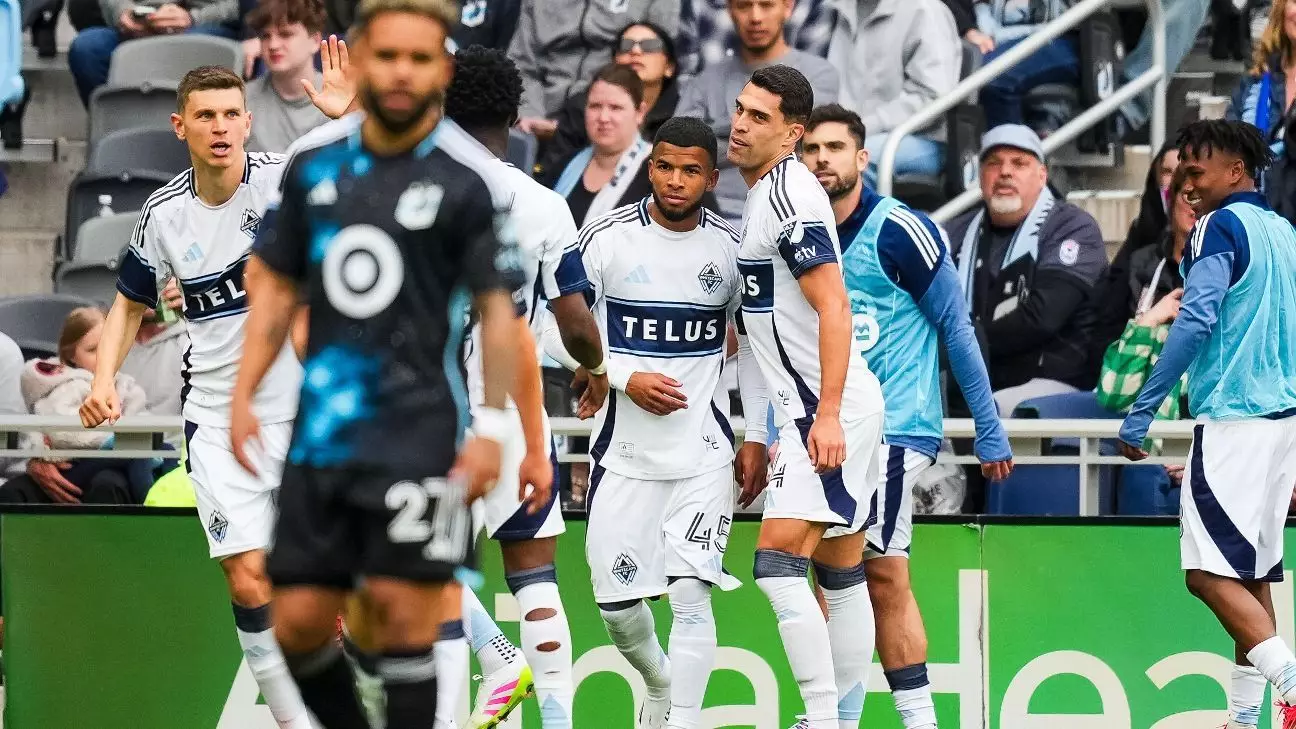In an alarming turn of events during a recent Major League Soccer match between Minnesota United FC and the Vancouver Whitecaps, an alleged incident of discrimination has stirred controversy and raised significant questions about the league’s commitment to its Non-Discrimination Policy. Occurring in the final moments of the game, the verbal altercation witnessed between Minnesota’s Joseph Rosales and Vancouver’s Emmanuel Sabbi captured not only the attention of fans but also prompted an official response from the league. The claim of discriminatory behavior has been noted by MLS, which has pledged to review the situation comprehensively.
The confrontation last Sunday unfolded dramatically in the 95th minute of the match, which Vancouver eventually won 3-1. Viewers of the broadcast were treated to a disturbing scene where tempers flared, culminating in a visibly tense interaction between the players. The involvement of referees, notably Drew Fischer, who reportedly initiated a dialogue among the captains and managers of both teams, showcased the immediate seriousness of the allegations. However, absence of penalties during the game revealed a potential gap in the enforcement of the league’s policies. Fischer’s decision to continue the match without assessing a formal reprimand indicated a limitation in corroborating the claims of discrimination.
The Aftermath and Escalation of Tensions
Perhaps more disconcerting was the post-match behavior, where reports emerged of Rosales pushing a Vancouver player as tensions escalated off the pitch. This incident highlights a troubling reality within sports culture, where the ramifications of verbal aggression can sometimes lead to physical confrontations. While the league takes a firm stance against discrimination, the behavior exhibited on the field raises concerns about the effectiveness of its measures in creating a safe and respectful environment for all players involved.
Minnesota United FC did not shy away from acknowledging their potential involvement in this incident. Their statement underlining that “harassment or discriminatory behavior has no place in our sport” reflects an organizational awareness that is crucial in the present climate of social responsibility within sports. The club’s commitment to addressing the issue in conjunction with Major League Soccer is a step in the right direction, yet it remains to be seen how enforceable these declarations will be beyond mere words.
Historical Context and the Broader Implications
This incident is not an isolated one; MLS has encountered several similar occurrences over the past years where players faced sanctions for discriminatory remarks. Notable cases, such as Kai Wagner’s three-game suspension for directing slurs at an opponent and Dante Vanzeir’s six-game ban for racist remarks, signal a growing concern regarding player behavior and the league’s stance on discrimination. These troubling repeat incidents suggest a deeper cultural issue within the sport that must be addressed at its core.
To combat this alarming trend, the establishment of a training program by MLS, in collaboration with the Black Players For Change and the MLS Players Association, marks a significant effort to educate players—especially those unfamiliar with American sports culture—on acceptable verbal conduct. However, the effectiveness of this initiative will ultimately depend on its implementation and the genuine intent of players to participate in creating a more inclusive atmosphere.
The Role of Leadership in Combatting Discrimination
The responsibility for change does not solely lie with the players; coaches, support staff, and organizational leaders must also hold themselves to the same standards of accountability. In these moments of controversy, the demeanor of leadership on and off the field becomes essential as they set the tone for team culture and behavior. Pressure from fans and advocates for social justice will likely continue to shape the landscape, demanding more than just policies—they want actions that resonate with the seriousness of these allegations.
As the league engages in a thorough review of the recent incidents, the real test lies in its ability to not only acknowledge past mistakes but also to foster a culture that actively discourages prejudice in all forms. The repercussions of allowing discriminatory practices to fester are profound, not just for the players involved but for the integrity of the sport itself. Both MLS and its clubs have an incredible opportunity to lead by example, asserting that every player should feel valued and respected, fostering an environment where the beautiful game can be enjoyed without fear of discrimination.

